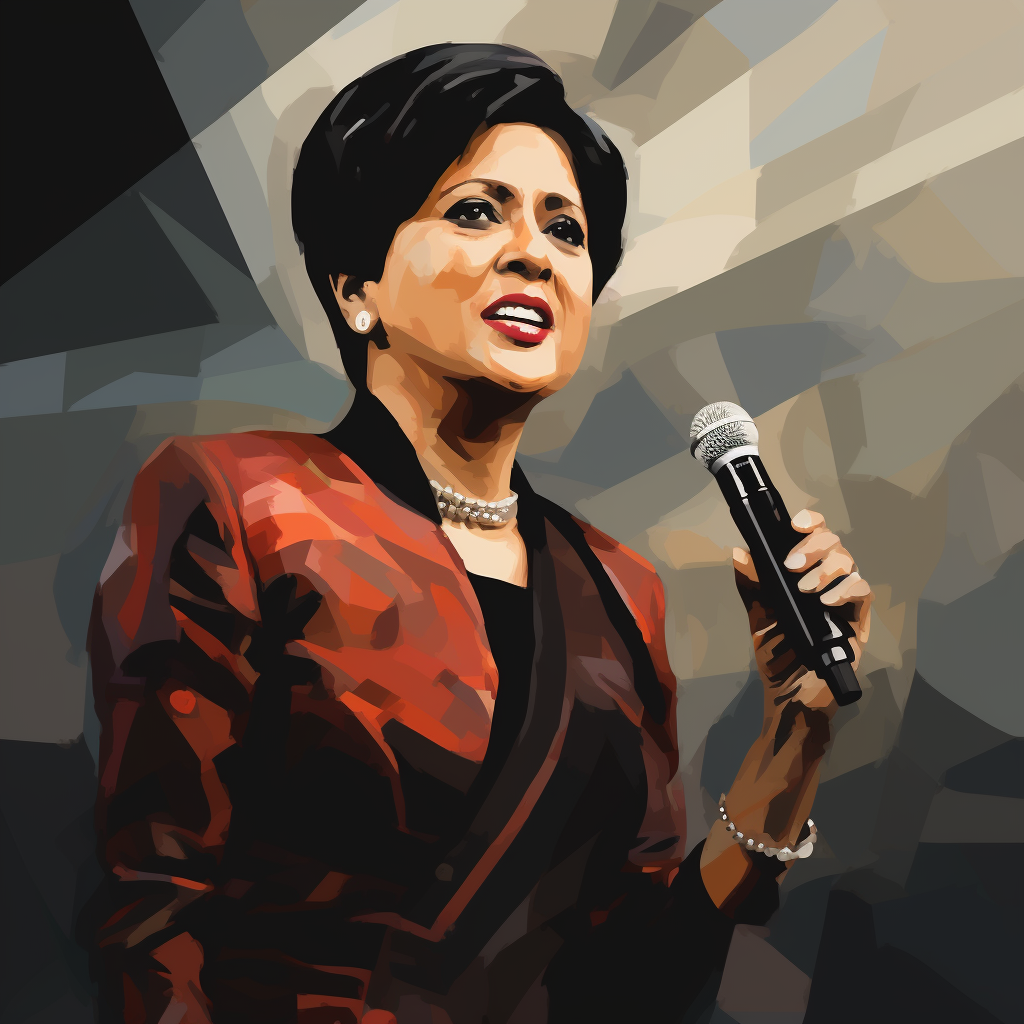Self Awareness In Leadership

Self-awareness has emerged as a cornerstone for effective and empathetic leadership. No longer limited to traditional notions of command and control, today's leaders are expected to navigate complex interpersonal dynamics, foster inclusive environments, and lead with authenticity.
Amidst this shift, self-awareness stands out as a critical attribute that distinguishes exceptional leaders from the rest.

What is Self-Awareness and Why is it Important in Leadership?
Self-awareness in leadership refers to a leader’s conscious understanding of their own personality, including strengths, weaknesses, thoughts, beliefs, motivation, and emotions. It enables leaders to recognize how their feelings and reactions affect the people around them.
Having self-awareness lays the foundation for emotional intelligence, a key leadership skill that involves understanding and managing one’s emotions and the emotions of others.
It plays a crucial role in effective decision-making, a fundamental aspect of leadership. Leaders who are self-aware are more likely to make considered, empathetic decisions because they understand how their choices impact both themselves and their team. They are able to step back and view situations objectively, reducing the influence of personal biases and emotional reactions.
Self-awareness is integral to developing empathy, an essential quality for leaders who seek to create and maintain positive, productive relationships with their teams. Empathetic leaders who understand their own emotional responses can better relate to the feelings and perspectives of others, fostering a collaborative and supportive work environment.
Self-awareness is more than just an introspective tool; it's a transformative quality that enhances every aspect of leadership, from decision-making and communication to empathy and relationship-building.
Characteristics of Self-Awareness in Leadership

Emotional Intelligence
At the heart of self-awareness in leadership lies emotional intelligence (EI), the ability to understand and manage one's own emotions and recognize their impact on others. Leaders with high EI are adept at navigating emotional landscapes, both their own and those of their team members. This skill allows them to respond to workplace challenges with empathy and emotional maturity, fostering a healthy, productive work environment.
Values and Beliefs
Alignment of personal and organizational values is another critical characteristic of self-aware leadership. When leaders are clear about their values and beliefs, they are more likely to make decisions that are congruent with the organization's mission and vision. This alignment enhances integrity and authenticity in leadership, building trust and respect among team members.
Strengths and Weaknesses
A self-aware leader is also acutely aware of their strengths and weaknesses. This awareness is not about dwelling on shortcomings, but rather about understanding where one excels and where support or development is needed. By recognizing their areas for improvement, leaders can seek growth opportunities and delegate tasks that align better with the strengths of other team members.
Impact on Others
Finally, self-aware leaders understand how their behavior and decisions impact team dynamics and overall organizational culture. They are mindful of their actions and communication, ensuring they set a positive example and cultivate a supportive and inclusive workplace.
Benefits of Self-Awareness in Leadership
Self-awareness in leadership extends its benefits far beyond the individual leader, impacting the entire organization.
Organizational Success
Leaders who are self-aware are better equipped to create and execute strategic visions that align with their team's capabilities and organizational goals. Their ability to understand and manage their emotions contributes to clearer, more effective decision-making, directly impacting organizational success.
Employee Satisfaction
A self-aware leader's empathetic and authentic approach often translates into higher employee satisfaction. When team members feel understood and valued, it leads to increased morale and a sense of belonging within the organization. This positive work environment not only attracts talent but also retains it.
Productivity
Finally, self-aware leaders, through their understanding of personal and team dynamics, can effectively navigate and mitigate conflicts, enhance team collaboration, and optimize workflow. By playing to their strengths and acknowledging their weaknesses, they can delegate appropriately, fostering a more productive and efficient work environment.
5 Examples of Self-Aware Leaders

1. Satya Nadella - CEO of Microsoft
Since taking over as CEO in 2014, Satya Nadella has transformed Microsoft's culture from one known for internal competition to one of collaboration and innovation. His approach focused on empathy and learning from mistakes, acknowledging his initial shortcomings in these areas. Nadella's self-awareness, particularly in recognizing the need for cultural change and his role in it, has been central to Microsoft's renewed success and growth.
2. Indra Nooyi - Former CEO of PepsiCo
Indra Nooyi, who led PepsiCo for 12 years, is renowned for her deep self-awareness and emotional intelligence. She prioritized long-term sustainable growth and championed health-focused product lines, aligning with her personal beliefs and values. Nooyi's self-aware approach, including her acknowledgment of the challenges faced by working women (which she herself experienced), significantly impacted PepsiCo’s policies and global image.
3. Jacinda Ardern - Prime Minister of New Zealand
Jacinda Ardern’s leadership style, particularly during crises like the Christchurch mosque shootings and the COVID-19 pandemic, demonstrates high levels of self-awareness. Her empathetic response, openness about her emotions, and commitment to authenticity have garnered worldwide admiration. Ardern's understanding of the emotional tone required in her communication and policies reflects a profound level of self-awareness.
4. Sheryl Sandberg - COO of Facebook
Sheryl Sandberg's leadership and her book "Lean In" have had a significant impact on discussions about women in leadership. Her self-awareness is evident in her candid discussions about her own experiences, vulnerabilities, and learning journeys. This openness has not only shaped her leadership style but also influenced the corporate culture at Facebook, promoting a more inclusive and supportive environment.
5. Mary Barra - CEO of General Motors
Mary Barra, the CEO of General Motors, is a stellar example of self-aware leadership in a traditionally male-dominated industry. Barra's journey in GM, rising from an internship to the CEO position, showcases her deep understanding of the company and industry.
Her self-awareness is evident in her strategic decisions, such as embracing electric vehicles and autonomous technology, recognizing the need for GM to evolve in the face of climate change and technological advancements. Barra's willingness to acknowledge industry challenges and pivot GM's focus highlights her self-reflective approach and commitment to innovation and sustainability.
Internal and External Self-Awareness: Differences and Balance
Self-awareness in leadership manifests in two distinct forms: internal and external self-awareness.
Internal self-awareness is about understanding one's own emotions, motivations, and values. It's a deep personal insight into what makes you tick, your strengths and weaknesses, and your unique way of responding to various situations.
On the other hand, external self-awareness revolves around understanding how others perceive you. It's about recognizing how your actions, words, and demeanor are interpreted and received by those around you.
The balance between these two forms of self-awareness is crucial. Too much focus on internal self-awareness without considering external perceptions can lead to a disconnect with others, while overemphasizing how you're perceived can compromise authenticity. Strategies to balance these aspects include:
- Reflective Practices: Engage in regular self-reflection and journaling to deepen internal self-awareness.
- Feedback Mechanisms: Implement regular, structured feedback processes to gain insight into external perceptions.
- Empathy Exercises: Practice seeing situations from others' perspectives to understand external viewpoints better.
- Mindfulness: Mindfulness and meditation can help in being present and more attuned to both internal states and external responses.
The Leadership Continuum
Self-awareness is not an isolated trait but a critical component of the leadership continuum. This continuum represents the evolution of a leader's style and approach over time. At the outset, a leader might rely more on instinct and traditional management practices. However, as they grow and develop, the role of self-awareness becomes more pronounced.
In the leadership continuum, self-awareness acts as a catalyst for growth. It allows leaders to assess their effectiveness critically, adapt their style to different situations, and continuously learn and evolve. Leaders who are self-aware tend to be more adaptable, empathetic, and resilient, qualities that are essential in the ever-changing landscape of leadership challenges.
How to Become a Self-Aware Leader
Developing self-awareness is a continuous process and there are several practical exercises, tools, and resources that leaders can utilize:
- Self-Assessment Tools: Tools like the Myers-Briggs Type Indicator or the Emotional Intelligence Appraisal can provide insights into one’s personality and emotional intelligence.
- Professional Coaching: Working with a professional coach can offer personalized guidance and feedback to improve self-awareness.
- Leadership Workshops and Seminars: Participating in workshops focused on leadership development can provide practical strategies and peer learning opportunities.
- Mindfulness and Meditation: Regular practice can enhance focus and self-awareness.
- Peer Learning Groups: Engaging with peer groups for shared learning and feedback can provide diverse perspectives and foster self-awareness.
Incorporating these practices into a regular routine can significantly enhance a leader's self-awareness, ultimately leading to more effective, empathetic, and adaptable leadership.
Self-awareness stands as a pivotal component in the tapestry of effective leadership. Embracing and cultivating self-awareness is not merely a personal endeavor but a strategic imperative for any leader aiming to excel in the ever-evolving landscape of leadership challenges



